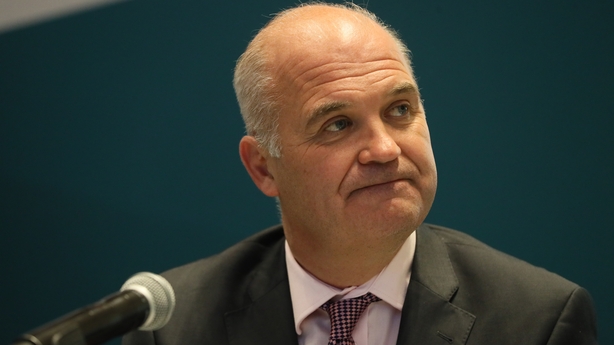The former Chief Medical Officer Dr Tony Holohan has expressed concern about the fall in the numbers of healthcare staff being vaccinated against Covid-19.
Dr Holohan said that we cannot expect the population to be vaccinated if healthcare workers are not, and that the health of healthcare workers was essential for preparedness to tackle the next pandemic.
The ex-CMO was speaking at a conference in Dublin which is examining the effects of the pandemic on essential workers.
Dr Holohan also said that the government should consider having an additional trained workforce on stand-by for dealing with another pandemic, who could be deployed life a lifeboat crew or the Civil Defence.
He said that during the pandemic some services had to be closed or curtailed due to healthcare staff being redeployed to other duties.
The former CMO said having this group of people with connections to the community would ensure that highly trained medical professionals such as Emergency Medical Technicians and nurses were not pulled from their core duties for things like vaccinations and swabbing.
Research carried out by the UCD Business School found that women in essential work were more adversely affected by Covid-19.
It found female essential workers were more at risk of contracting Covid-19, experienced more anxiety and stress and worked more intensively during the pandemic
Speaking at the same event the Irish Nurses and Midwives Organisation said they would like to see a full public inquiry into the pandemic.

Read more: Questions for Ireland's inquiry into handling of Covid-19 pandemic
The event, entitled 'Working in Essential Services: Lessons from Working during Covid-19’, is being held in the UCD Michael Smurfit Graduate Business School.
It will explore whether essential workers possess the skills and resilience to undertake such a role again in the event of another health emergency.
Experts will also ask how we can reduce risks for essential workers in the future.
The findings from the UCD Working in Ireland Survey provide the backdrop for the symposium.
The research looked at the realities of the work performed by nurses, doctors, care staff, retail staff and other essential workers during the pandemic and found that their well-being was substantially impaired during the pandemic with pronounced levels of reported anxiety.
"The pandemic was difficult for everyone, but it was especially difficult for essential workers working on the frontline," said symposium organiser Professor John Geary of UCD College of Business.
"They had to meet the pandemic head-on and each day they went to work, whether that was in a hospital, care home, meat factory or supermarket, they faced the very real possibility of contracting the virus and bringing it home to their families.
"We applauded them and are forever indebted to their courage and hard work. But we must now recognise the risks and effects this work had on them, and acknowledge that female workers in particular were very adversely affected in their work during Covid.
"It behoves us then to enquire how such negative effects might be mitigated and reduced, and especially if there was to be another health emergency in the future."
The conference will hear from key people across academia, business and trade unions who will examine the position of essential services across the public sector and the private economy.
Additional reporting by Samantha Libreri






